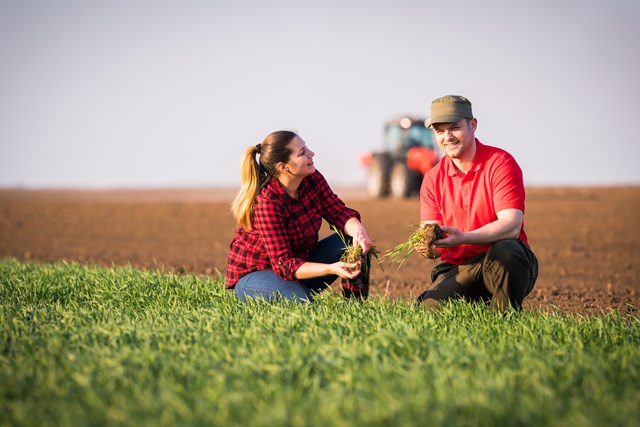Myerscough collaborating on major climate change project
- Published
- Thursday 27 May 2021
Myerscough College is a project partner in a major government-funded drive to remove greenhouse gases from the atmosphere.

As part of a UK Research and Innovation (UKRI) investment of £30 million over four-and-a-half years, researchers at Aberystwyth University’s Institute for Biological, Environmental and Rural Sciences (IBERS) will lead a consortium of partners to develop biomass crops.
They will also collaborate on the restoration of peat soil as part of the greenhouse gas removal projects.
The results will be used to shape longer-term government decision-making on the most effective technologies to help tackle climate change and reduce CO2 emissions in order to meet net zero carbon emissions by 2050.
Alongside project partners, including Myerscough, they will be demonstrating the latest technologies for planting willow and Miscanthus, the two perennial biomass crops that are best suited to UK conditions.
The work will be led by Aberystwyth University in collaboration with Aberdeen University, Rothamsted Research, Gloucestershire University, the UK Centre for Ecology & Hydrology, and will benefit from the industrial expertise of Terravesta Ltd and Willow Energy.
Specifically, Myerscough’s involvement in the research includes new field trials on College land, hosting willow and miscanthus plots. Both crops grow well on land that is less suited to food production, and can be harvested every one to three years.
Since they remove carbon dioxide from the atmosphere as they grow, they are regarded as a renewable and low carbon source of electricity.
Professor Iain Donnison, Head of the Institute of Biological, Environmental & Rural Sciences (IBERS) at Aberystwyth University, commented: “It’s a great privilege to have been selected to take a leading role in this very important investment in efforts to tackle climate change. The project we lead, along with the others, will make important contributions to meeting the net zero climate targets which are so vital to protecting the future of our planet.
“We’re also excited by the wider opportunities that will come from demonstrating the crops at our partner sites. Myerscough College has large numbers of students enrolled on agriculture courses, and also acts as a hub within their local farming communities. This gives us a real opportunity both to engage young people in practical research, and also to reach existing farmers in surrounding communities via conferences and open days.”
The £31.5 million programme is part of the second wave of the UK Government’s Strategic Priorities Fund (SPF), which invests in high quality multi and interdisciplinary research.
This is the largest programme to assess greenhouse gas removal methods funded by the UK government, through UKRI, to date.
Professor Sir Duncan Wingham, Executive Chair of the Natural Environment Research Council, part of UKRI, said: “Reducing greenhouse gas emissions is a priority for the UK, but it’s clear that alone that will not be enough to reduce CO2 and meet the UK’s net zero climate target by 2050.
“These projects will investigate how we can actively remove greenhouse gases from the atmosphere using innovative technologies at the scale required to protect our planet.''

